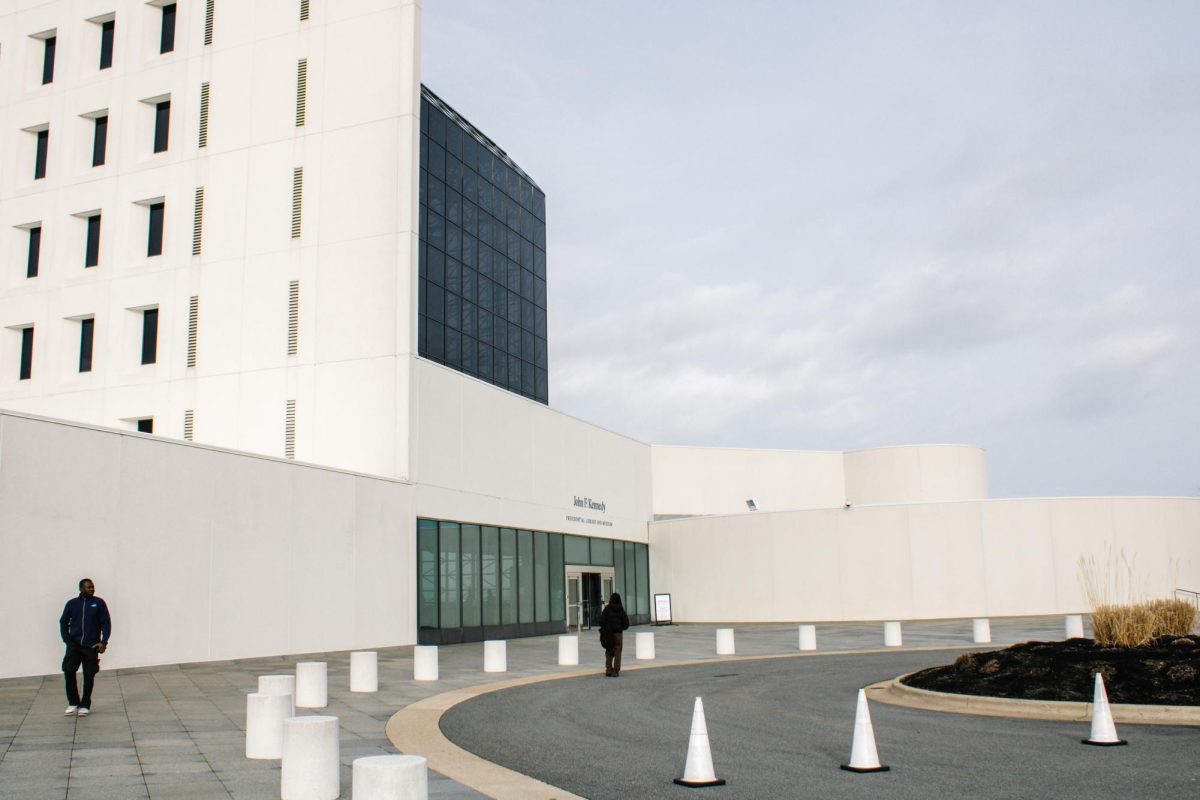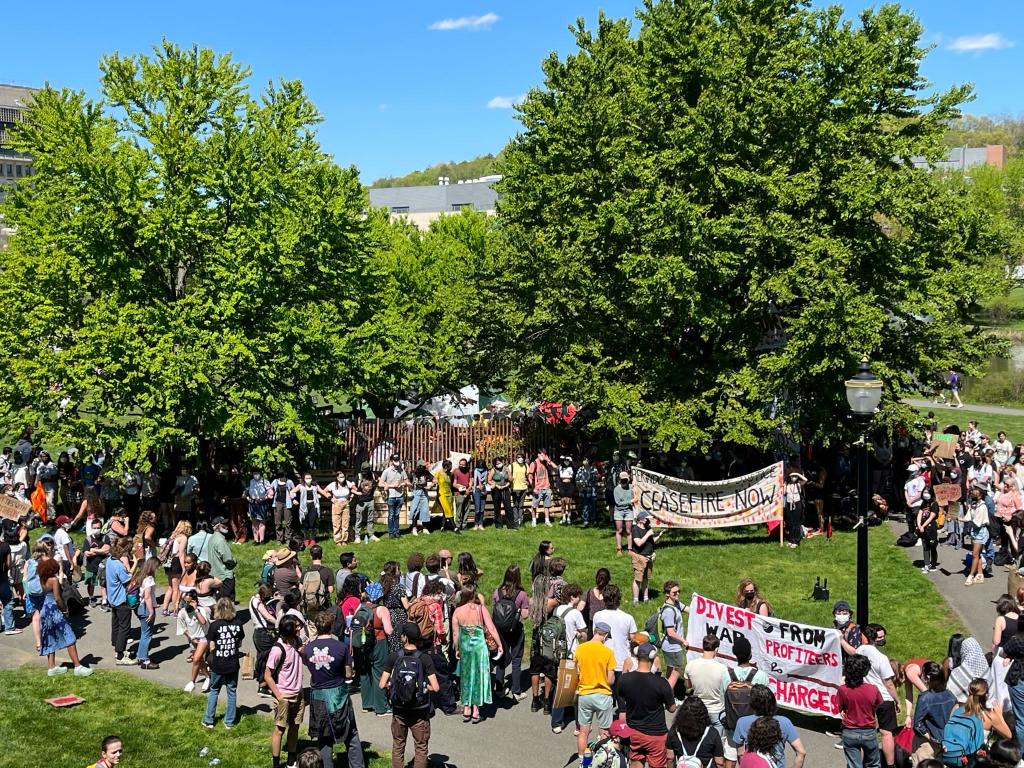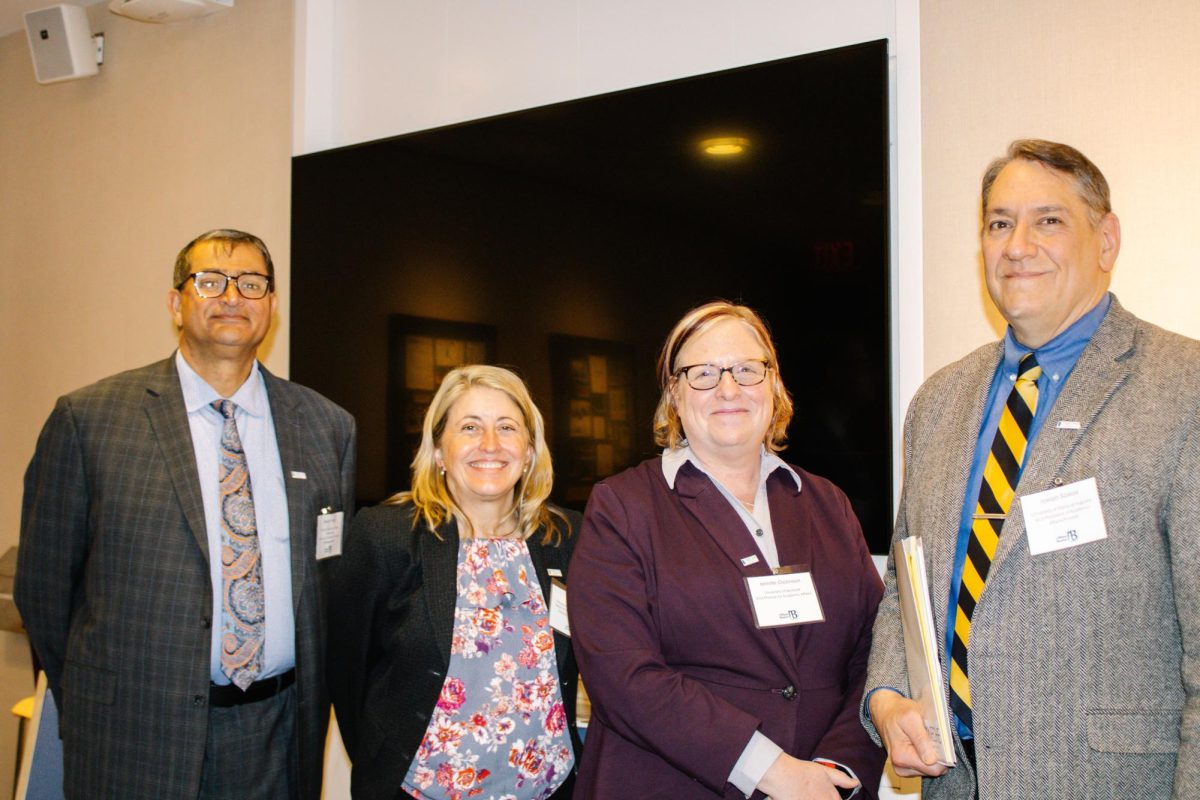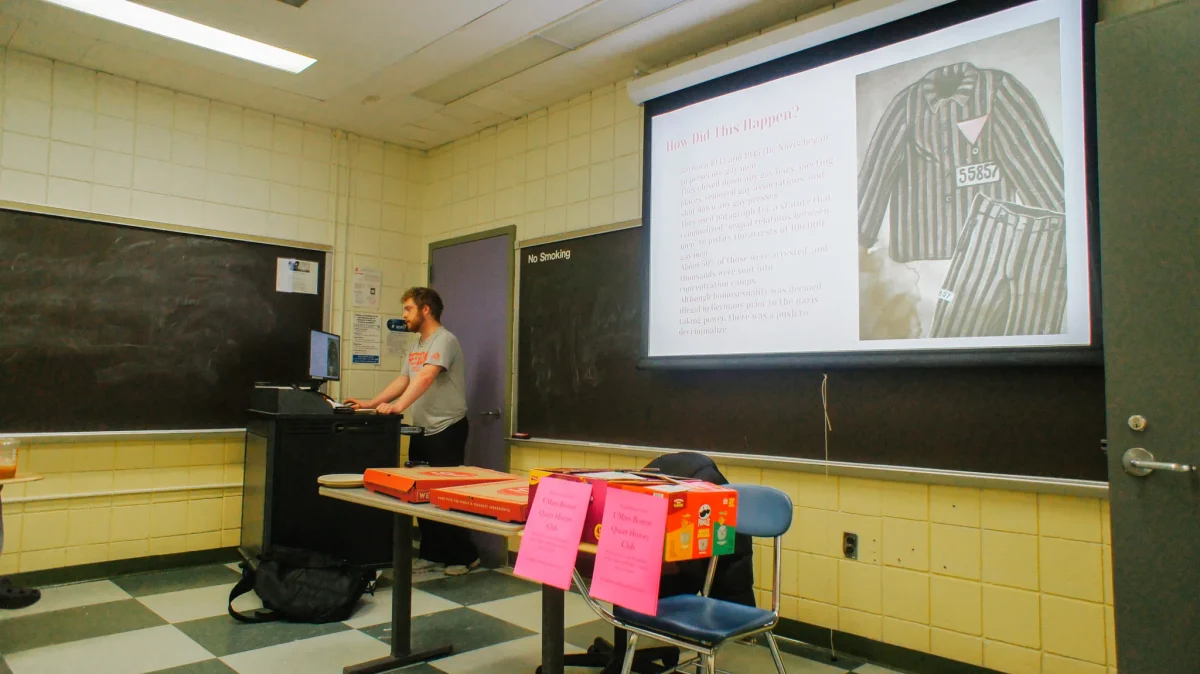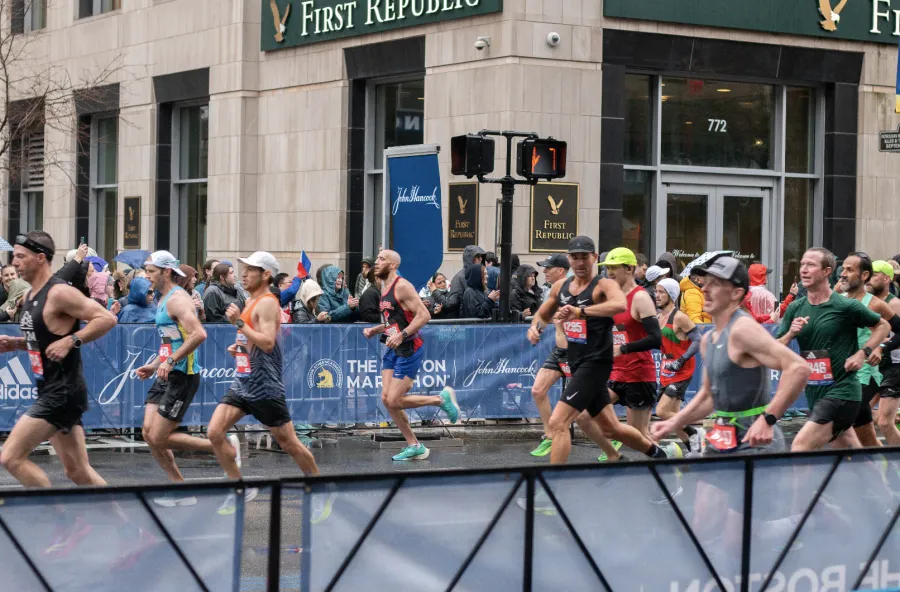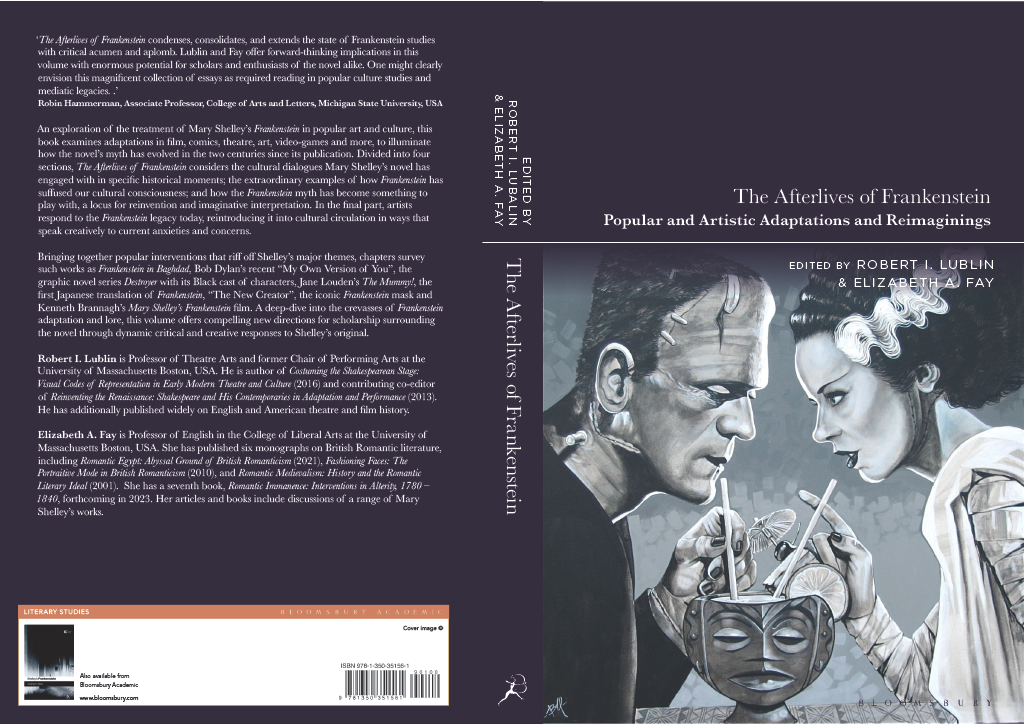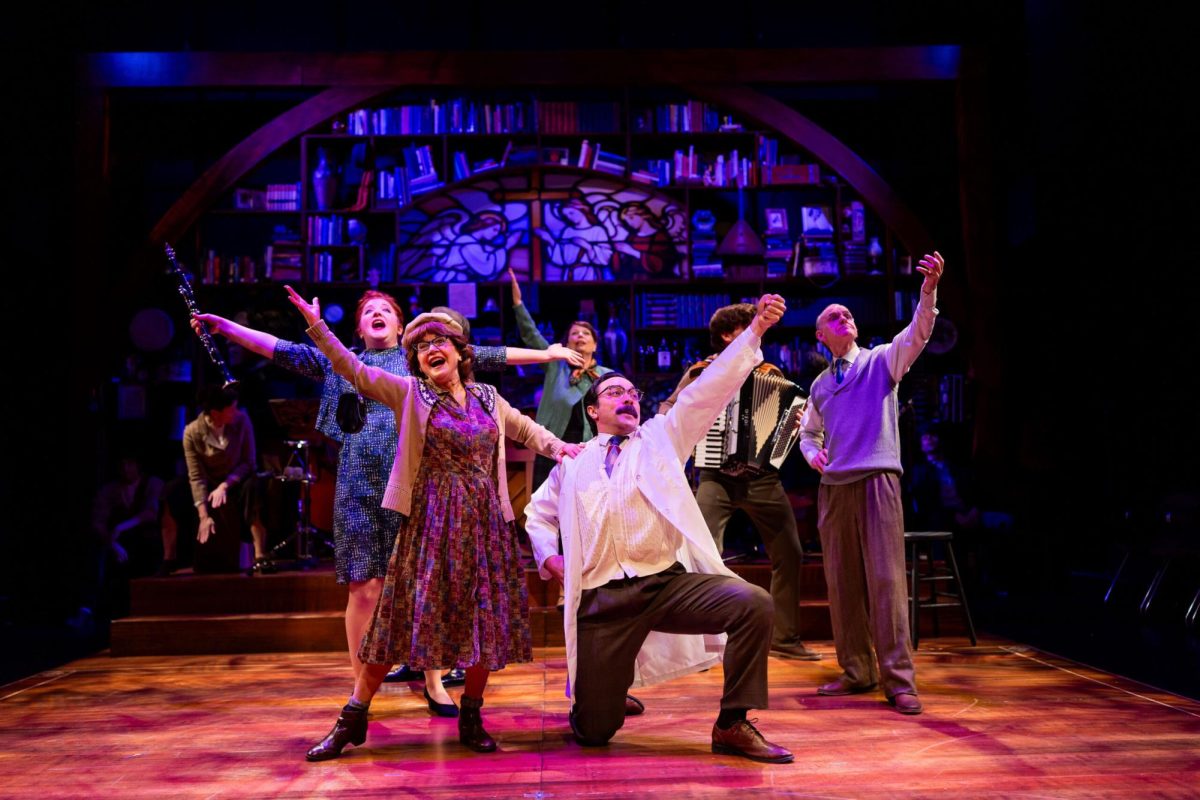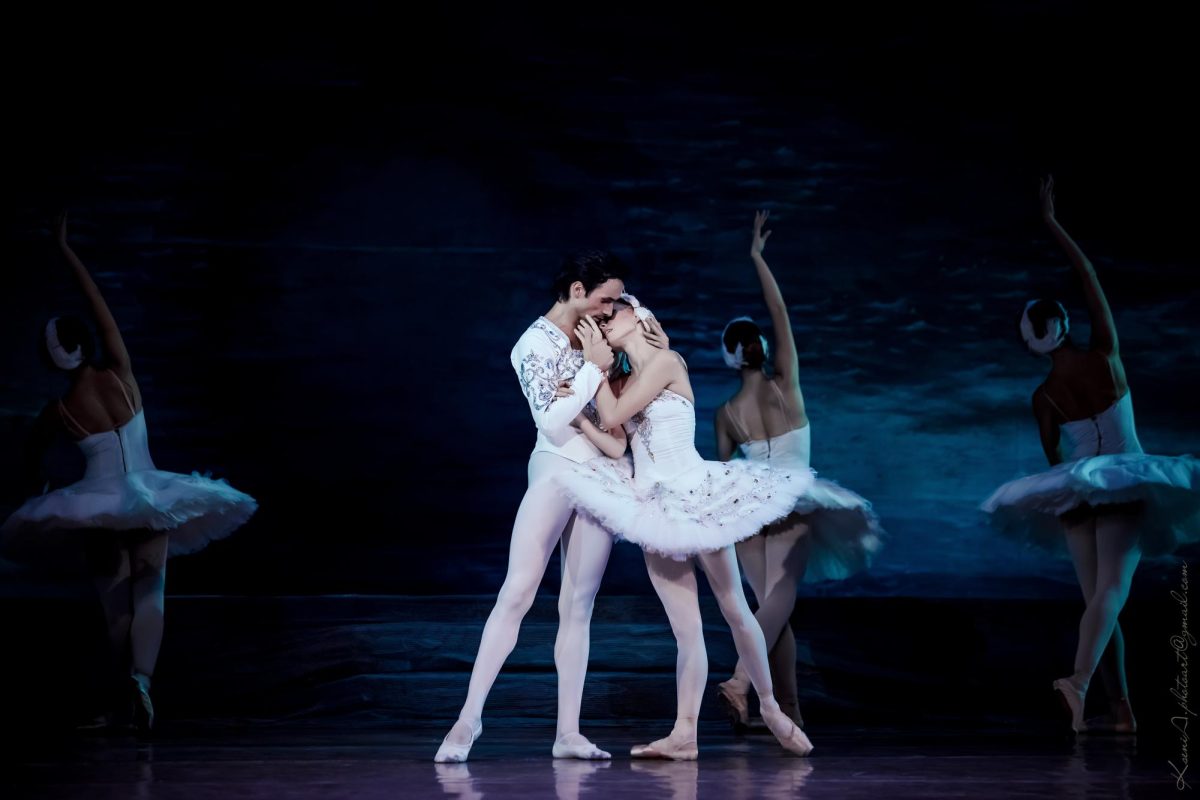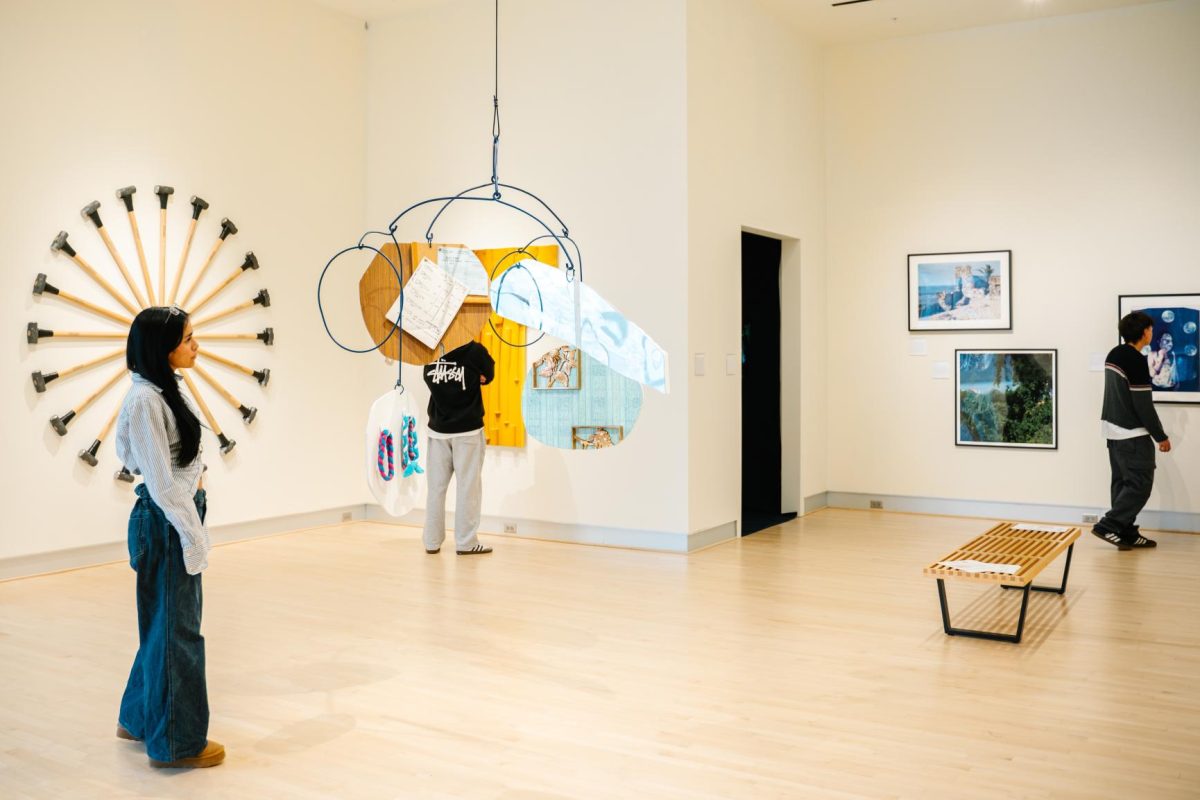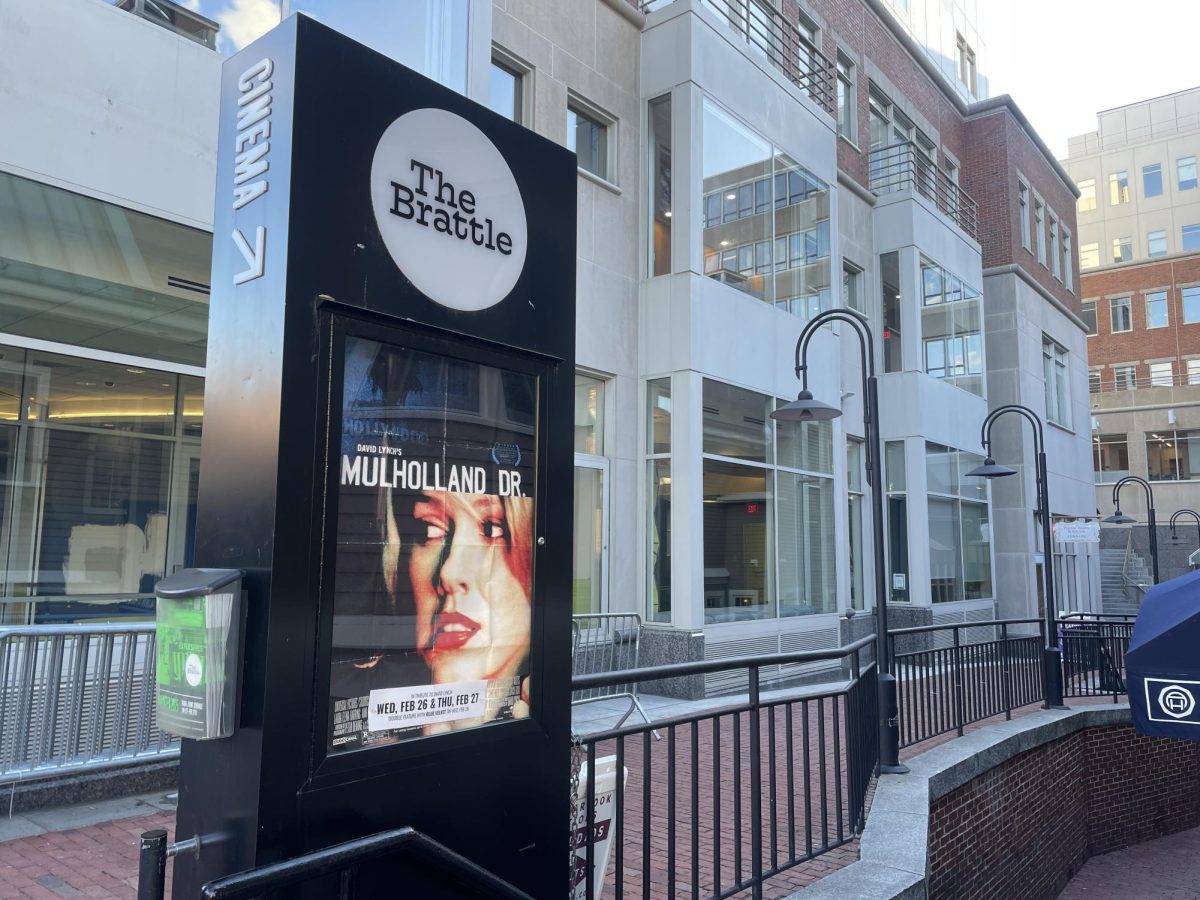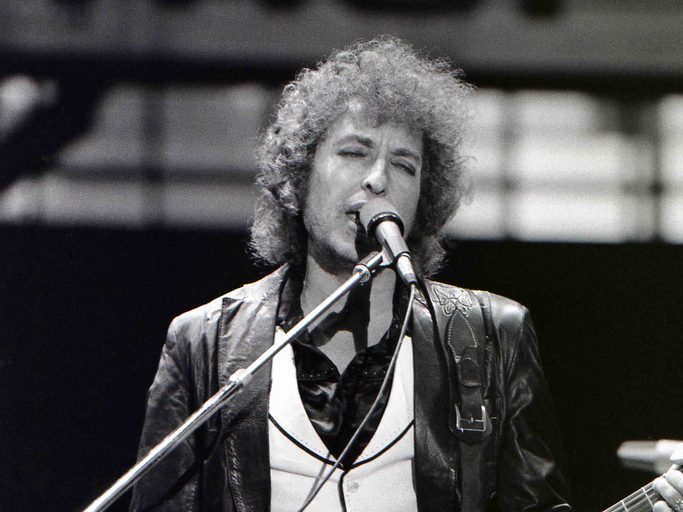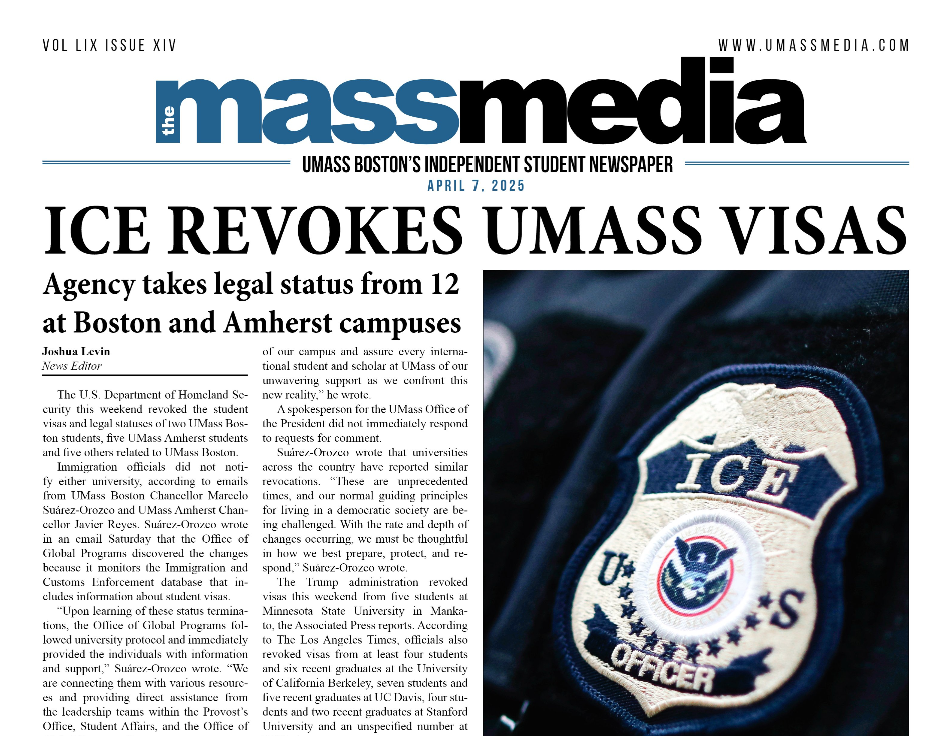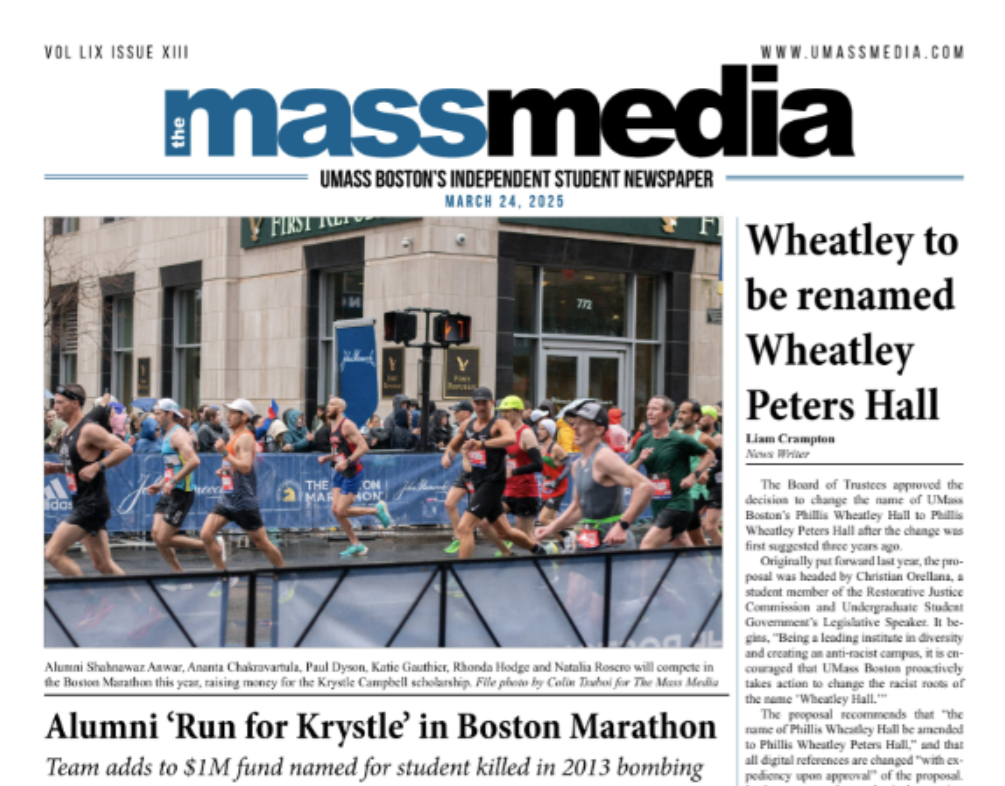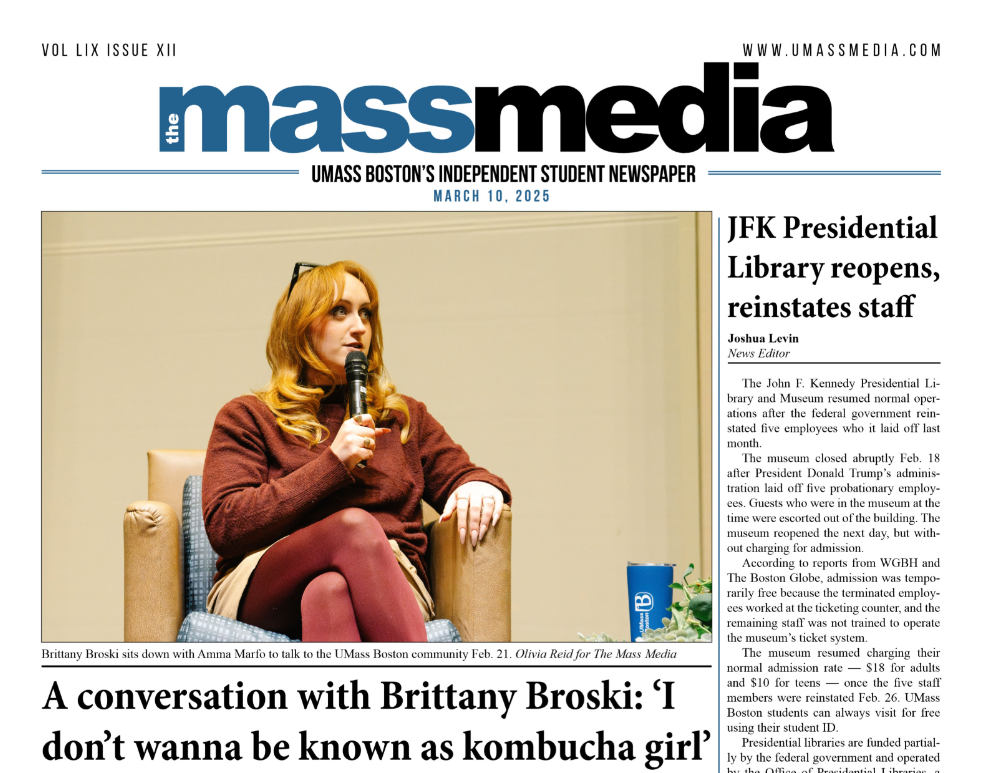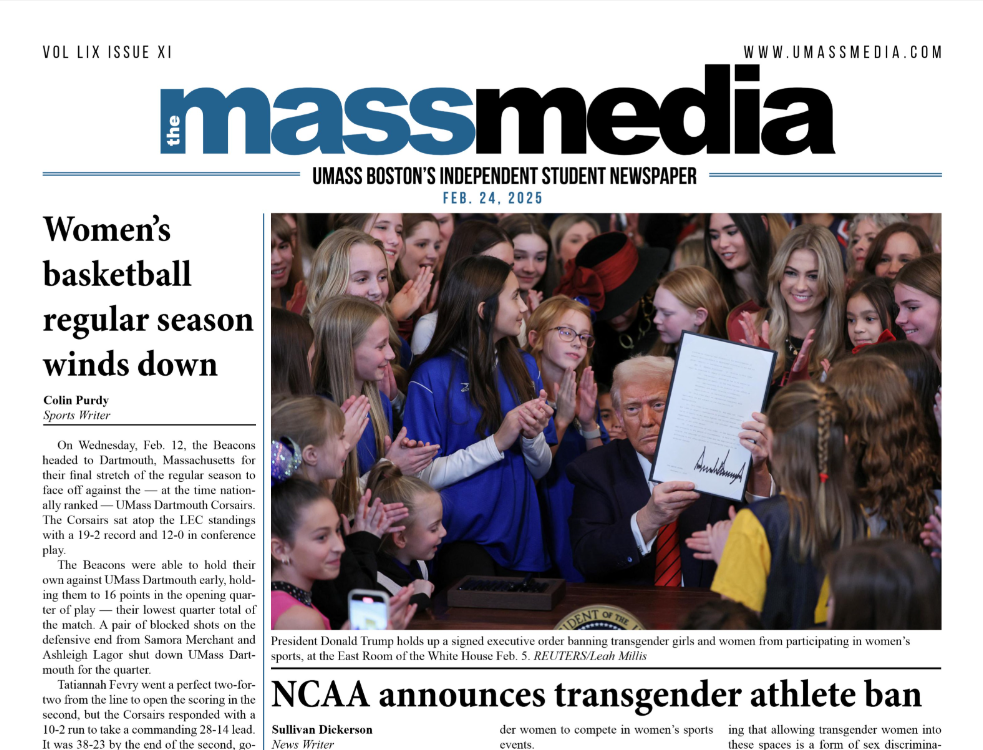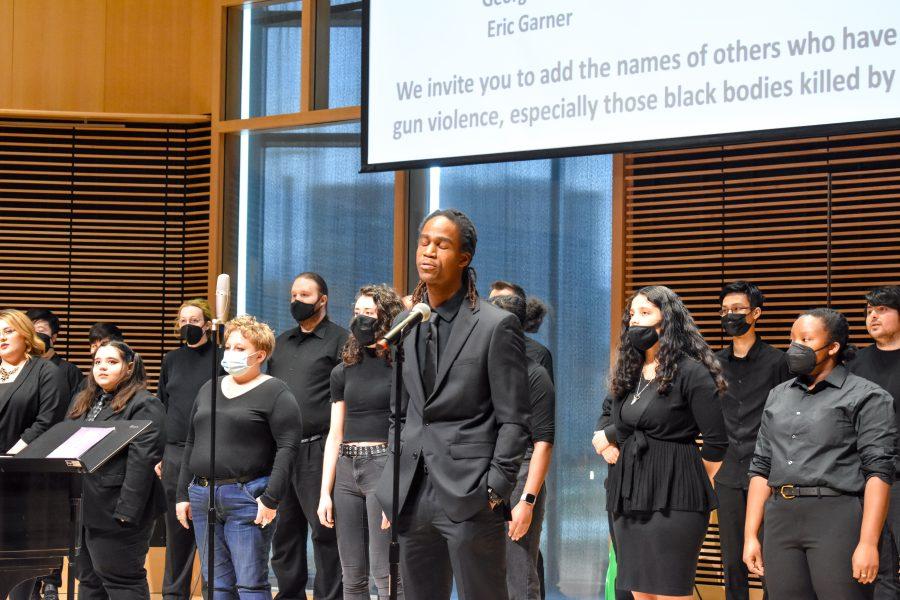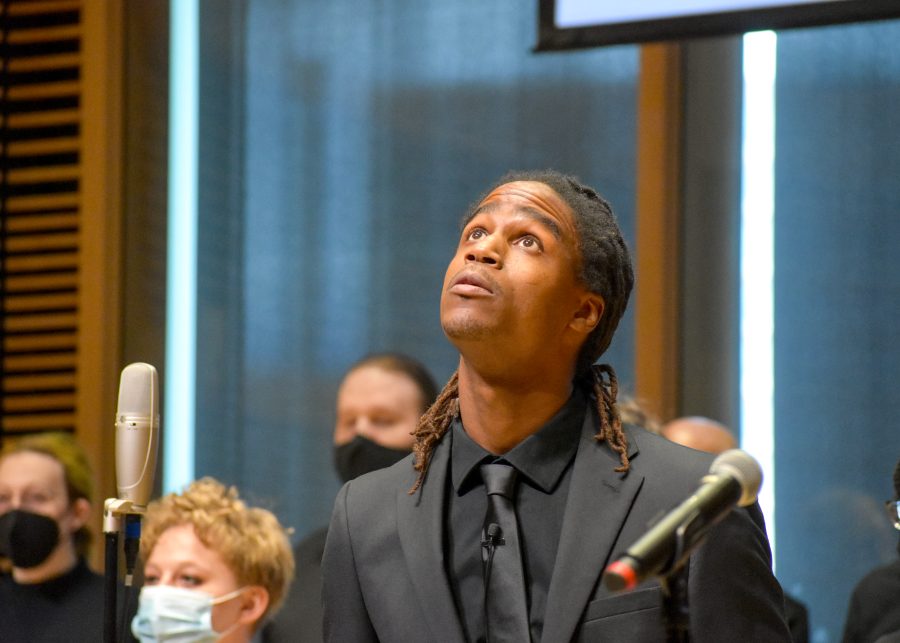UMass Boston choirs beautifully blend art and activism
Eric M. Anderson, Director of Communications and Special Projects with the Transformational Prison Project, delivers a spoken word performance accompanied by the UMass Boston Chamber Singers in University Hall. Photo courtesy of UMass Boston Performing Arts.
April 21, 2022
**Trigger Warning: This article contains mentions of police brutality**
In a highly commodified and fast-paced world, bringing a voice to the otherwise virtually voiceless can be difficult. Social media moves at a mile a minute, and today’s trending topic of injustice can just become a series of tweets about another name and face. However, the choirs of UMass Boston were able to bring these names to an audience, and did so beautifully in their program “Put Their Names In The Air: Exploring the Intersection of Race, Incarceration, and the Arts.”
The performance, which was held on Wednesday, April 13, showcased the talents of the two choirs at UMass Boston. The University Singers group welcomes anyone interested in performing, so long as they sign up for MUSIC 101, while the Chamber Singers features a smaller group of performers that are a bit more experienced in choir performances and are audition only.
“Put Their Names In The Air” also featured two guest artists to help host the event: André de Quadros and Eric M. Anderson. de Quadros is the founding conductor of Voices 21C, a program devoted to using choir to bring about human rights and justice, as well as a professor at Boston University; Anderson works as the Director of Communications and Special Projects for the Transformational Prison Project, which works to build connection and empathy towards those who have committed violent crimes. Anderson himself served fifteen years in prison, and also wrote a poem that was included in the performance.
The program began at 2 p.m., in which Rafael Jaen, Chair of the Performing Arts Department at UMass Boston, gave a warm welcome to the audience and introduced the choir and guest artists. Following the introduction, Andre de Quadros was welcomed on stage to set the scene of the topic for the audience. Using PowerPoints, statistics and his own experiences, de Quadros explained the injustices Black Americans—especially men—face every day, before the program seamlessly led into the choir’s first of two performances.
The first performance, entitled “Say Her Name,” had a very simple, repetitive style with the declaration “say their names, / they cannot be forgotten,” as the only lyrics. During an interlude of the piece, the choir recited names of victims of police brutality that had once made Twitter headlines, but had since been forgotten in the midst of a fast-paced culture, while recreating a heartbeat sound by beating on their chests. This section was absolutely chill-inducing, since it truly did put these victims’ names into the air and would not let them be forgotten. The piece also featured a solo from student conductor Angela Amico, who had an incredibly rich and powerful voice. The harmonies in the piece, and the entire choir’s performance as a whole, were incredibly tight and impressive. This made the performance far more entertaining to listen to in the audience, since every single voice blended together to make one cohesive unit.
Following the performance, guest artist Eric Anderson presented a poem he had written about his own experiences growing up without his father, but with his legacy always lingering. After the poem, the second piece from the choir began, with an additional performance from Anderson with the choirs. The piece entitled “Would You Harbor Me?” focused on asking the audience if they would house and assist other members of society and, if that was the case, why they chose not to help ex-criminals. This song, in conversation with Anderson’s own experiences in prison, truly did leave audience members to ponder their own implicit and explicit biases, and in a beautiful way.
After the two songs, Anderson had a dialogue with the audience about his life—his childhood, how he ended up in prison, his process of rebuilding his life and working with the Transformational Prison Project after getting out of prison—before answering a few questions from the audience. This truly allowed for some much-appreciated insight into Anderson’s life, without sharing too much, and allowed for a bit more context into his poem.
To close the program, the choir came out for their final piece, “Stand Up” from the film “Harriet,” which was conducted by the student conductor Angela Amico. Once again, the harmonies were absolutely incredible, but the soprano section was especially of note for their ability to float above the rest of the choir without being too overpowering or unpleasant to the ear. The three soloists—Shantell Manzira, Nada Tuffaha and Britney Soares—had incredible voices and sounded near angelic at times.
“Put Their Names In The Air” had been a beautiful and enlightening event of music, conversations and advocacy. The performance and discussion both had been truly eye-opening, especially the statistics presented at the beginning of the event and hearing Anderson tell his story. The UMass Boston choirs and their guest artists were able to find the perfect intersection between art and advocating for human rights—something many creatives still struggle with. Either the message comes off too heavy-handed, misses the mark or is completely tone-deaf all together. However, this group found the ideal middle point for these two ideas, and brought them together into an absolutely enjoyable concert.
If any students, staff or members of the UMass Boston community would like to support the choirs, they will have another performance on May 6 in the University Hall Recital Hall at 7 p.m. entitled “Stand Up!”. This recital focuses on historical spiritual music and modern gospel music, and tickets are $5. If any students are interested in joining the choirs of UMass Boston, they can join the University Chorus simply by adding MUSIC101 to their schedules, or they may audition for Chamber Singers in the first week of the semester.






